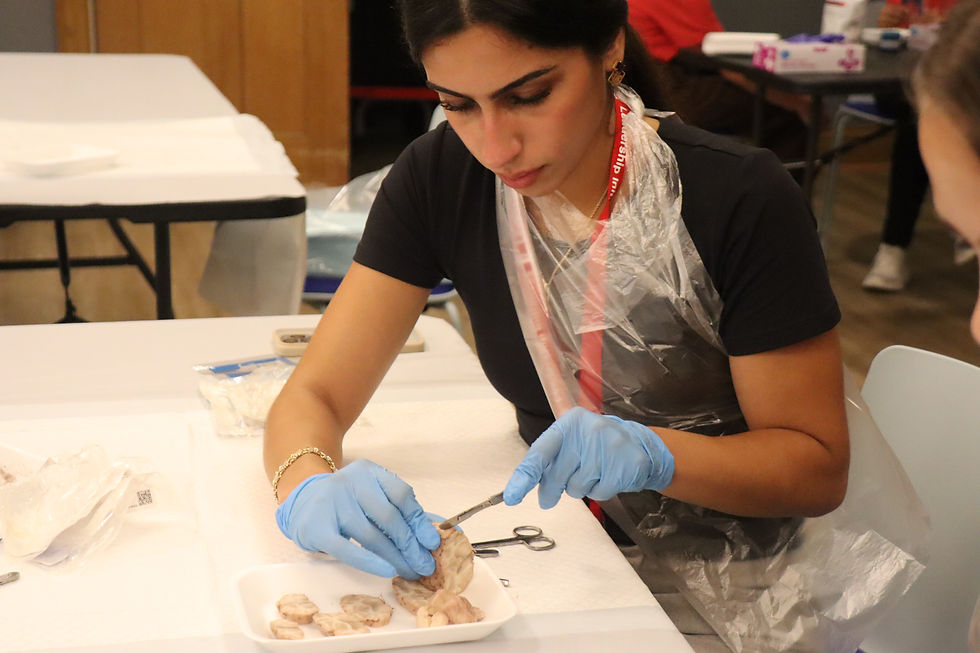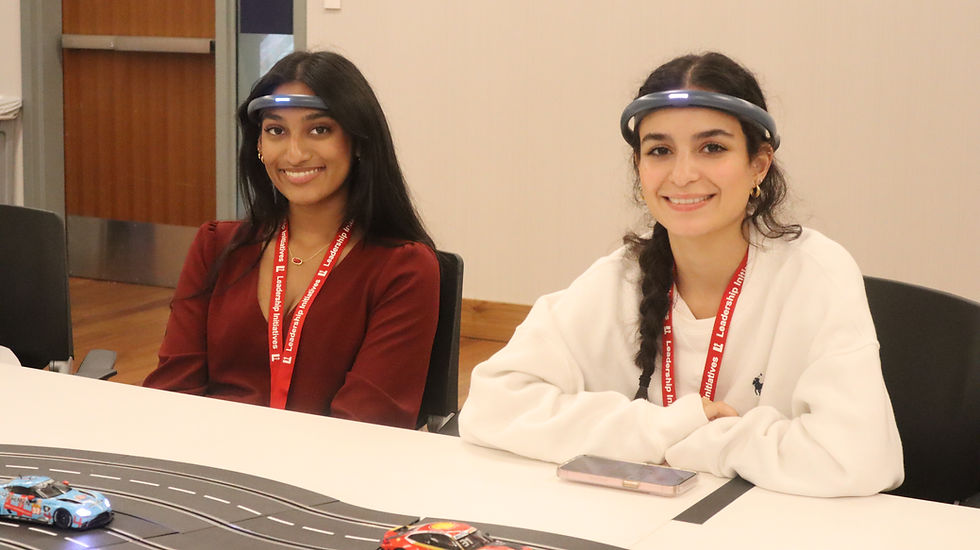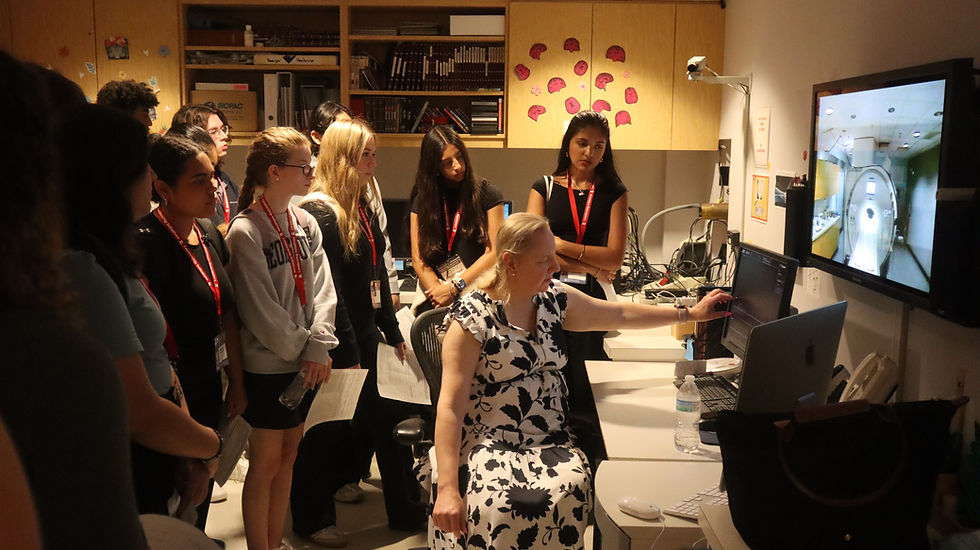Monday: A Deep Dive into the Brain
- Marshall Bailly
- Jul 8, 2025
- 2 min read
The day began with anticipation as the neuroscience interns gathered for their first lecture, eager to begin what would become a deeply immersive journey into the brain. The first full day of the program promised both intellectual challenge and hands-on discovery.
Dr. James Giordano opened the morning with his session, “Minding the Brain and What it Does,” expanding on his keynote from the day before with a compelling dive into neuroethics. Interns were soon engaged in thought-provoking discussions around consciousness, moral agency, and the responsibilities that come with unlocking the brain’s secrets. These conversations were not just theoretical. They marked the beginning of a moral and scientific foundation that students will carry into their future careers.

For intern Jenna H., one idea in particular stood out:
“The concept that everyone can share an experience, but yours is unique to you. It stood out to me because while we all think we share the same experience, each person will have different factors affecting their perception of the event.”

Later in the morning, excitement grew as Dr. Brent Harris, Director of the Georgetown Brain Bank, introduced students to the field of neuropathology. A detailed walkthrough of human brain anatomy using actual preserved brain tissue set the stage for one of the most powerful parts of the day: a hands-on exploration where interns could closely examine the structures they had just studied.
For Mahathi H., the experience was unforgettable:
“It was a very monumental experience. Holding a human brain and thinking that's what I used to operate my body and essentially embody was surprising. It felt so small and light. Seeing the different components was fascinating. You can explicitly see where your memory comes from, where your personality is, and how the brain essentially controls the rest of your body.”
This session not only deepened students’ scientific understanding but also prompted personal reflection. As Lizzy M. shared:
“I thought about my own brain and life and reflected on the emphasis on being healthy not only physically, but mentally and socially as well. I considered the importance of focusing on that, regardless of the stresses or circumstances I may face in the future.”

What stood out even more was the natural mentorship that blossomed throughout the morning. Between discussions of cerebral cortices and neural circuits, interns asked questions about undergraduate research, neuroscience careers, and medical school pathways. This kind of personalized interaction makes the experience especially meaningful. Future scientists are receiving guidance directly from those who are already shaping the field.
For Andilee G., the impact of the Brain Bank session was nothing short of transformational:
“This was a life-changing experience. Of course, everyone has an idea of what a brain looks like, but I don’t think many people understand how significant it is that our minds are so complex. I now understand that.”
As the morning came to a close, it was clear that the interns were no longer just curious students. They had begun their transformation into thoughtful researchers, grounded in science and driven by a deeper sense of purpose. Monday set the tone for the rest of the week: a commitment to learning, questioning, and growing into future leaders in neuroscience.





Comments